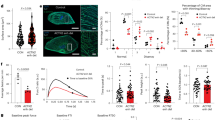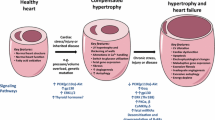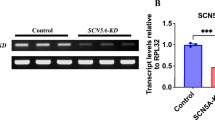Abstract
The mechanism of doxazosin-induced apoptosis through α1-adrenoceptor-independent pathway has been reported in various types of cell models. However, the molecular events involved in this effect are still not fully discovered. In present study, we proposed that the transforming growth factor-β type I receptor (TβRI/ALK5) may contribute to the doxazosin-induced apoptosis in H9C2 cardiomyoblasts. Via the detection of cell viability, apoptotic nuclei, and caspase-3 activity, we found that doxazosin induced concentration- and time-dependent apoptosis in H9C2 cells. The cell apoptosis induced by 30 μM doxazosin was exacerbated by the addition of 10 ng/ml transforming growth factor-β1 (TGF-β1). Doxazosin or TGF-β1 alone respectively elevated p38 mitogen-activated protein kinases (MAPK) and Smad3 protein phosphorylation in H9C2 cells. However, the cotreatment of doxazosin and TGF-β1 attenuated the TGF-β1-induced Smad3 protein phosphorylation and increased doxazosin-induced p38 MAPK protein phosphorylation. Furthermore, inhibitors of TβRI/ALK5 (SB431542) and p38 MAPK (SB202190) or TβRI/ALK5 knockdown all dramatically reduced the doxazosin-induced apoptosis in H9C2 cells. In conclusion, our results demonstrated that TβRI/ALK5-p38 MAPK phosphorylation signaling pathway could contribute to doxazosin-induced cell apoptosis, which could be further enhanced by TGF-β1 in association with attenuating Smad3 phosphorylation in H9C2 cells.





Similar content being viewed by others
References
Akduman B, Crawford ED (2001) Terazosin, doxazosin, and prazosin: current clinical experience. Urology 58:49–54
Anglin IE, Glassman DT, Kyprianou N (2002) Induction of prostate apoptosis by alpha1-adrenoceptor antagonists: mechanistic significance of the quinazoline component. Prostate Cancer Prostatic Dis 5:88–95
Bujak M, Frangogiannis NG (2007) The role of TGF-beta signaling in myocardial infarction and cardiac remodeling. Cardiovasc Res 74:184–195
Calderone A, Abdelaziz N, Colombo F, Schreiber KL, Rindt H (2000) A farnesyltransferase inhibitor attenuates cardiac myocyte hypertrophy and gene expression. J Mol Cell Cardiol 32:1127–1140
Chang TJ, Chen WP, Yang C, Lu PH, Liang YC, Su MJ, Lee SC, Chuang LM (2009) Serine-385 phosphorylation of inwardly rectifying K+ channel subunit (Kir6.2) by AMP-dependent protein kinase plays a key role in rosiglitazone-induced closure of the K(ATP) channel and insulin secretion in rats. Diabetologia 52:1112–1121
Eiras S, Fernandez P, Pineiro R, Iglesias MJ, Gonzalez-Juanatey JR, Lago F (2006) Doxazosin induces activation of GADD153 and cleavage of focal adhesion kinase in cardiomyocytes en route to apoptosis. Cardiovasc Res 71:118–128
Euler-Taimor G, Heger J (2006) The complex pattern of SMAD signaling in the cardiovascular system. Cardiovasc Res 69:15–25
Frick MH, Halttunen P, Himanen P, Huttunen M, Porsti P, Pitkajarvi T, Poyhonen L, Pyykonen ML, Reinikainen P, Salmela P et al (1986) A long-term double-blind comparison of doxazosin and atenolol in patients with mild to moderate essential hypertension. Br J Clin Pharmacol 21(Suppl 1):55S–62S
Garrison JB, Kyprianou N (2006) Doxazosin induces apoptosis of benign and malignant prostate cells via a death receptor-mediated pathway. Cancer Res 66:464–472
Gonzalez-Juanatey JR, Iglesias MJ, Alcaide C, Pineiro R, Lago F (2003) Doxazosin induces apoptosis in cardiomyocytes cultured in vitro by a mechanism that is independent of alpha1-adrenergic blockade. Circulation 107:127–131
Grygielko ET, Martin WM, Tweed C, Thornton P, Harling J, Brooks DP, Laping NJ (2005) Inhibition of gene markers of fibrosis with a novel inhibitor of transforming growth factor-beta type I receptor kinase in puromycin-induced nephritis. J Pharmacol Exp Ther 313:943–951
Ilio KY, Park II, Pins MR, Kozlowski JM, Lee C (2001) Apoptotic activity of doxazosin on prostate stroma in vitro is mediated through an autocrine expression of TGF-beta1. Prostate 48:131–135
Javelaud D, Mauviel A (2005) Crosstalk mechanisms between the mitogen-activated protein kinase pathways and Smad signaling downstream of TGF-beta: implications for carcinogenesis. Oncogene 24:5742–5750
Keledjian K, Garrison JB, Kyprianou N (2005) Doxazosin inhibits human vascular endothelial cell adhesion, migration, and invasion. J Cell Biochem 94:374–388
Laping NJ, Grygielko E, Mathur A, Butter S, Bomberger J, Tweed C, Martin W, Fornwald J, Lehr R, Harling J et al (2002) Inhibition of transforming growth factor (TGF)-beta1-induced extracellular matrix with a novel inhibitor of the TGF-beta type I receptor kinase activity: SB-431542. Mol Pharmacol 62:58–64
Lee AS, Chen WP, Su MJ (2008) Comparison of the cardiac electrophysiological effects between doxazosin and bunazosin. J Biomed Sci 15:519–528
Mulder KM (2000) Role of Ras and Mapks in TGFbeta signaling. Cytokine Growth Factor Rev 11:23–35
Partin JV, Anglin IE, Kyprianou N (2003) Quinazoline-based alpha 1-adrenoceptor antagonists induce prostate cancer cell apoptosis via TGF-beta signalling and I kappa B alpha induction. Br J Cancer 88:1615–1621
Rodriguez-Feo JA, Fortes J, Aceituno E, Farre J, Ayala R, Castilla C, Rico L, Gonzalez-Fernandez F, Garcia-Duran M, Casado S et al (2000) Doxazosin modifies Bcl-2 and Bax protein expression in the left ventricle of spontaneously hypertensive rats. J Hypertens 18:307–315
Rojas Gomez DM, Schulte JS, Mohr FW, Dhein S (2008) Alpha-1-adrenoceptor subtype selective regulation of connexin 43 expression in rat cardiomyocytes. Naunyn Schmiedebergs Arch Pharmacol 377:77–85
Sanchez-Capelo A (2005) Dual role for TGF-beta1 in apoptosis. Cytokine Growth Factor Rev 16:15–34
Sun HY, Wang NP, Halkos M, Kerendi F, Kin H, Guyton RA, Vinten-Johansen J, Zhao ZQ (2006) Postconditioning attenuates cardiomyocyte apoptosis via inhibition of JNK and p38 mitogen-activated protein kinase signaling pathways. Apoptosis 11:1583–1593
Tahmatzopoulos A, Sheng S, Kyprianou N (2005) Maspin sensitizes prostate cancer cells to doxazosin-induced apoptosis. Oncogene 24:5375–5383
Thomas D, Bloehs R, Koschny R, Ficker E, Sykora J, Kiehn J, Schlomer K, Gierten J, Kathofer S, Zitron E et al (2008) Doxazosin induces apoptosis of cells expressing hERG K(+) channels. Eur J Pharmacol 579:98–103
Walden PD, Globina Y, Nieder A (2004) Induction of anoikis by doxazosin in prostate cancer cells is associated with activation of caspase-3 and a reduction of focal adhesion kinase. Urol Res 32:261–265
Zhao H, Lai F, Nonn L, Brooks JD, Peehl DM (2005) Molecular targets of doxazosin in human prostatic stromal cells. Prostate 62:400–410
Acknowledgments
The authors thank Wen-Chun Wei for excellent technical assistance. This work was supported by National Science Council, Taiwan (NSC 97-2323-B-002-007).
Author information
Authors and Affiliations
Corresponding author
Rights and permissions
About this article
Cite this article
Yang, YF., Wu, CC., Chen, WP. et al. Transforming growth factor-β type I receptor/ALK5 contributes to doxazosin-induced apoptosis in H9C2 cells. Naunyn-Schmied Arch Pharmacol 380, 561–567 (2009). https://doi.org/10.1007/s00210-009-0449-1
Received:
Accepted:
Published:
Issue Date:
DOI: https://doi.org/10.1007/s00210-009-0449-1




